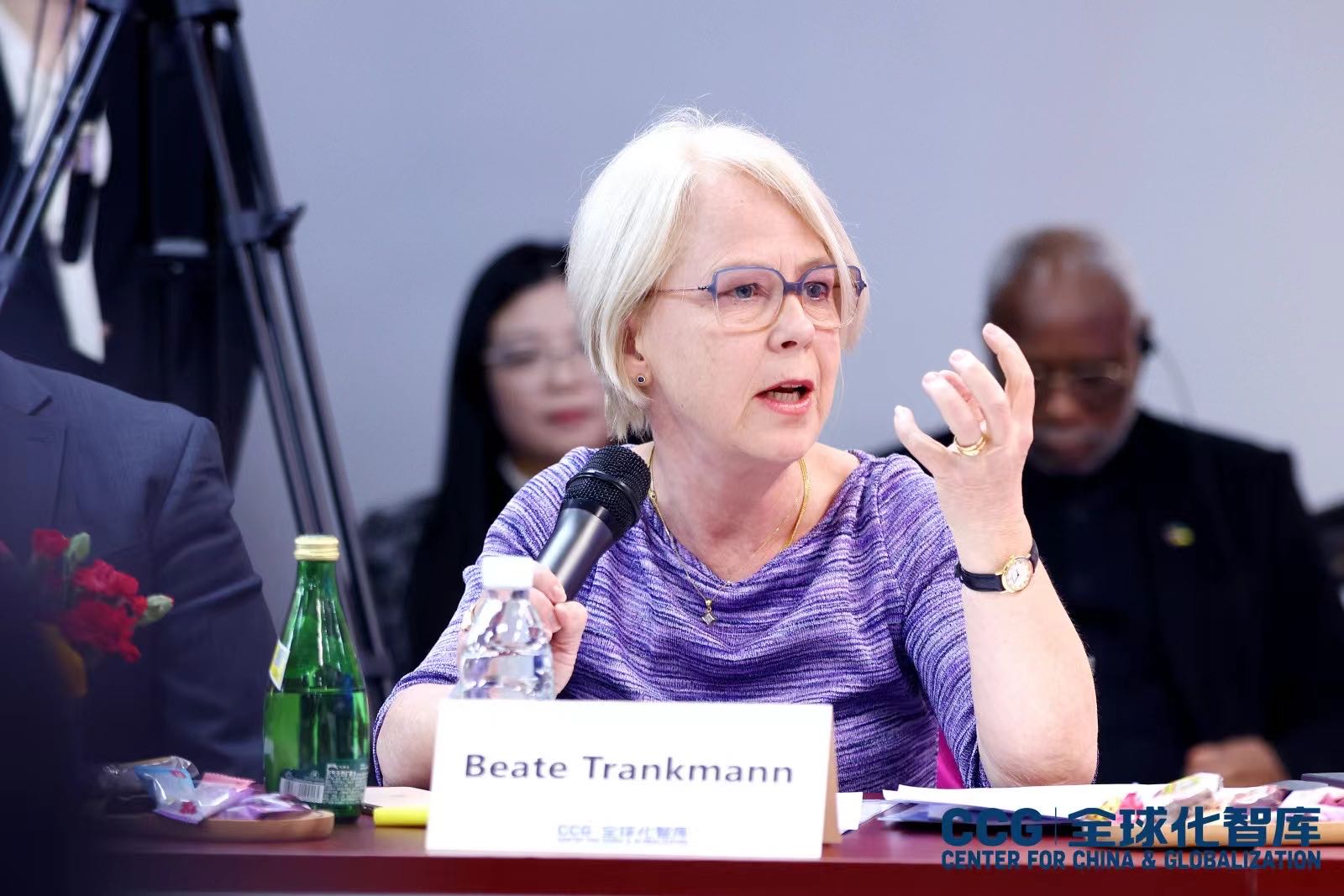Roundtable Remarks by Ms Beate Trankmann at the Invest in Women: Accelerate Progress Symposium on Financing for a Gender-Equal Future
March 8, 2024

UNDP Resident Representative in China Beate Trankmann delivered remarks during a roundtable discussion on “Financing for Gender Equality in International Development Cooperation” at the Invest in Women: Accelerate Progress Symposium on Financing for a Gender-Equal Future.
Good afternoon!
Gender equality is a fundamental human right and an obvious question of equity and fairness. But it is also a necessary foundation for sustainable development and a peaceful, prosperous world. And of course investing in women makes economic sense. When women and girls are given equal opportunities, we see profound impacts on poverty alleviation, education, and health, but also overall economic growth.
For instance, closing the gender employment gap could raise GDP by nearly 20% on average across countries, and could double the current global GDP growth rate over the next decade.[1] If women started and scaled new businesses at the same rate as men, it could bring economic gains of 5 to 6 trillion dollars.[2]
As a multilateral development partner, UNDP strives to incorporate gender in all aspects of our work to achieve sustainable development around the world:
- Gender equality is one of the six key priority areas in UNDP’s 2022-2025 global Strategic Plan.
- This focus is also underpinned by a dedicated Gender Equality Strategy highlighting entry points to promote gender equality through the five other priority areas.
- One example of this cross cutting approach is our EQUANOMICS iniative that supports finance ministries and tax authorities in 26 countries to develop fiscal policies that work for gender.
- At UNDP, we also have a Gender Equality Seal Certification Programme to guide country offices in incorporating gender considerations into projects. At UNDP China, our project expenditures directed towards gender equality and women's empowerment have increased from 19% to 79% since 2021 as a result.[3]
"Gender equality is a fundamental human right and an obvious question of equity and fairness. But it is also a necessary foundation for sustainable development and a peaceful, prosperous world."
Let me now turn to China and the UN in China:
In 2021, the release of China’s Third White Paper on international development cooperation marked a historic shift, prioritizing gender as a key area for the first time. This demonstrated China’s commitment to integrating gender into its broader development cooperation strategy, and acknowledgment of the importance of gender equality in fostering inclusive sustainable development internationally.
We welcome this shift, and the UN system is actively engaging in supporting China to realize these commitments:
At the policy level for example, the UN, led by UN Women, conducted a gender analysis of the FOCAC Dakar Action Plan (2022-2024), helping to incorporate an emphasis on gender equality and women’s empowerment.
At the programmatic level, we have worked with both MOFCOM and CIDCA to advance gender equality through China’s South-South Cooperation engagements.
In Bangladesh we provided women with equipment and skills to encourage entrepreneurship and assist with employment opportunities in the garment industry, and in Lebanon, we equipped women to access various e-commerce platforms and supply chain tools.
These initiatives have not only improved livelihoods, and supported recovery from COVID-19, but also strengthened long-term resilience against future shocks that we know impact women disproportionately.
The UN system is currently also starting a multi-year project with the European Union to inform policy and practice of China’s international development cooperation for enhanced SDG impact, with gender being one of the main priorities. We thank the EU for their support in this initiative.
To advance and consolidate a strong gender focus in China’s development cooperation engagements, a comprehensive approach that cuts across all stages of the programming cycle is necessary including in both design and implementation, but also by measuring and monitoring gender impacts.
As such, we welcome the efforts that CIDCA has been making to develop dedicated gender indicators as part of its new monitoring and evaluation framework released last year at the Sunshine Forum. We look forward to having the opportunity to extend our support to CIDCA in the roll-out of this framework.
In closing, let me reemphasize that progress on SDG5 is crucial to advancing the SDGs as a whole. We cannot hope to achieve the Global Goals if we exclude half the world and leave their ingenuity and contributions untapped.
Happy International Women's Day!
[1] https://openknowledge.worldbank.org/server/api/core/bitstreams/d891abb1-ca9c-42cd-989f-32d3885189a2/content
[2] https://www.worldbank.org/en/news/press-release/2023/03/02/pace-of-reform-toward-equal-rights-for-women-falls-to-20-year-low
[3] https://www.undp.org/china/gender

 Locations
Locations



